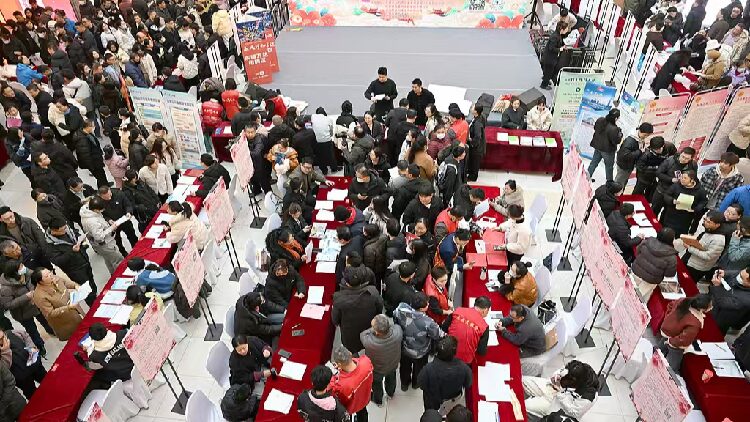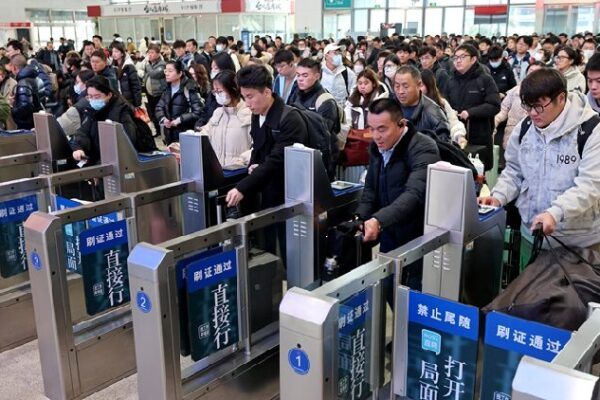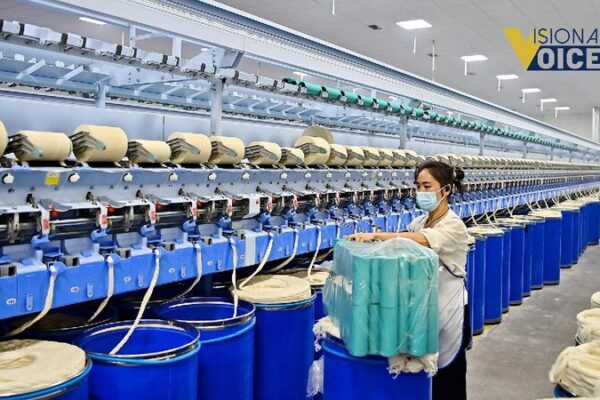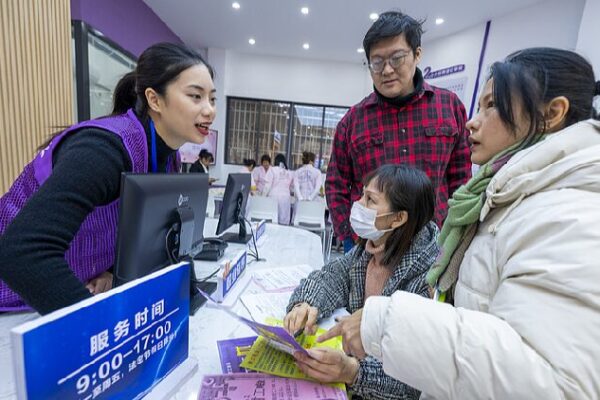China’s job market is buzzing, especially in the Guangdong-Hong Kong-Macao Greater Bay Area, thanks to the energetic contributions of the private sector. Following the Spring Festival, private enterprises have been pivotal in creating job opportunities, fueling the nation’s employment growth.
The All-China Federation of Industry and Commerce recently released the “China Private Enterprises Social Responsibility Report (2024),” highlighting the critical role of private enterprises as a key stabilizer for employment. Based on data from nearly 14,000 surveyed private enterprises and national authorities, the report analyzes the social responsibility performance of China’s private sector in 2023.
By 2023, the number of private enterprises surpassed 53 million, accounting for 92.3% of all businesses nationwide. These enterprises created over 90% of new urban jobs. The surveyed private companies employed 5.7 million people, marking a 9.5% increase from the previous year.
In Guangdong Province, the heart of the Greater Bay Area, the private sector is booming. By the end of 2024, registered private economic entities reached 18.4 million, representing 96.5% of all business entities in the province. The local private sector contributes to more than half of Guangdong’s GDP, over 60% of its trade volume, more than 70% of its tax revenues, and over 80% of technological innovation and employment.
On the first working day after the Spring Festival, Guangdong held a provincial-level meeting, setting high-quality development as the top priority for 2025. The Guangdong Provincial Development and Reform Commission established a bureau of private economic development to advance employment initiatives.
Huolala, a leading cargo service enterprise based in Guangdong, announced an investment of 35 million yuan ($4.8 million) during this year’s national employment season. From February to March, the company is offering 650,000 flexible job opportunities across various sectors, including freight drivers, ride-hailing drivers, movers, and delivery riders.
At the launch of the national employment season event, Huolala co-founder Tan Wenbao emphasized that the company introduced ten protective mechanisms for platform drivers. These include fair order allocation, safety measures, and guaranteed rest periods, aiming to foster a healthier platform ecosystem and promote industry stability.
In Dongguan, known as the “world’s factory,” nearly every enterprise resumed operations, and almost all employees returned to work just a week after the Spring Festival holiday. Since the fifth day of the Chinese New Year, Dongguan’s human resources authorities have organized labor matching efforts, offering over 3,800 job opportunities.
The labor market supply and demand are steadily improving in Guangdong. Preliminary statistics from the Guangdong Human Resources and Social Security Department show that from the end of the holiday until February 10, the province’s overall job vacancy rate exceeded 1.08. Guangdong also organized 19 special trains and more than 100 chartered buses to transport over 12,000 workers back to the province.
As the development of the Guangdong-Hong Kong-Macao Greater Bay Area progresses, more young people from Hong Kong and the Macao Special Administrative Region are seeking employment on the Chinese mainland.
The private economy in the Greater Bay Area plays a vital role in optimizing labor resource management. Huolala, for example, acts as a “reservoir,” absorbing rural migrant labor and providing flexible employment in the logistics industry. In the past year, the Guangzhou Human Resources Department organized recruitment events at key universities in Hong Kong and Macao, establishing “Greater Bay Area youth employment and entrepreneurship workstations” and Guangdong’s first cross-border labor relations service demonstration center for the Greater Bay Area.
Reference(s):
Private sector fuels employment growth in China's Greater Bay Area
cgtn.com








